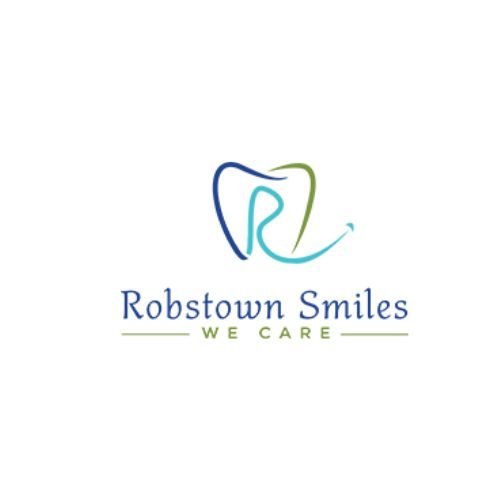healthcare

June 23,2025 • 5 min read
Importance of Baby Teeth and How to Keep Them Healthy

Many parents often wonder why baby teeth matter so much when they eventually fall out. While it's true that baby teeth (also known as primary teeth) are temporary, they play a vital role in a child’s overall development. These little teeth are more than placeholders they contribute to proper chewing, speech development, and even self-esteem. Moreover, healthy baby teeth set the foundation for strong and well-aligned permanent teeth.
Understanding the importance of baby teeth can help parents take proactive steps in their child’s oral hygiene. For families seeking dental care for kids in Robstown, early prevention and education can make all the difference. Healthy baby teeth ensure that children can eat comfortably, learn to speak clearly, and smile with confidence. If a baby tooth is lost too early due to decay, the surrounding teeth may shift and cause crowding issues later on, leading to orthodontic problems.
Why Baby Teeth Matter More Than You Think
Baby teeth usually begin to appear around six months of age and continue to erupt until about age three. Though they’ll eventually fall out, they play a significant role during the first decade of a child’s life. These teeth:
-
Act as guides for permanent teeth, helping them erupt in the correct position
-
Aid in chewing and proper nutrition by allowing children to eat a variety of foods
-
Support speech development by helping children form words correctly
-
Contribute to a child’s facial structure and appearance
When baby teeth are neglected, it can lead to cavities, infections, and even pain, affecting a child's quality of life. Worse yet, untreated cavities in baby teeth can spread and damage the permanent teeth developing underneath.
Common Threats to Baby Teeth
Tooth decay is the most common dental issue in young children. Known as early childhood caries (or baby bottle tooth decay), it’s caused by frequent exposure to sugary drinks like milk, formula, or juice especially when a baby falls asleep with a bottle. Plaque, a sticky film of bacteria, builds up on the teeth and produces acids that wear down the enamel.
Other risk factors include poor brushing habits, lack of fluoride, and a diet high in sugar or starches. Thumb sucking or extended pacifier use can also impact the alignment of teeth and jaw development if continued past toddlerhood.
Tips to Keep Baby Teeth Healthy
Establishing good oral hygiene habits early sets the stage for lifelong dental health. Here’s how you can help protect your child’s baby teeth:
Start Early:
Clean your baby’s gums with a soft, damp cloth even before teeth appear. Once the first tooth erupts, use a baby-sized toothbrush and a smear of fluoride toothpaste.
Brush Twice a Day:
Help your child brush their teeth in the morning and before bed. Use a pea-sized amount of toothpaste for children aged 3 and up, and supervise brushing until they can do it effectively on their own—usually around age 6 or 7.
Limit Sugary Snacks and Drinks:
Avoid putting your child to bed with a bottle. Choose water over juice, and offer snacks like cheese, yogurt, fruits, and vegetables instead of candy or cookies.
Schedule Regular Dental Visits:
The American Dental Association recommends that children see a dentist by their first birthday or within six months of their first tooth erupting. Routine checkups help detect and treat issues early.
Avoid Sharing Utensils:
Cavity-causing bacteria can be transferred from parent to child through shared spoons, cups, or even kisses. Keep your own oral health in check to protect your child’s.
Use Fluoride Wisely:
Fluoride helps strengthen enamel and prevent cavities. Talk to your child’s dentist about fluoride toothpaste and whether supplemental fluoride is needed.
Setting a Foundation for a Lifetime of Healthy Smiles
As a parent, you play the most crucial role in maintaining your child’s oral health. Creating a daily routine around brushing and encouraging healthy food choices makes dental care a natural part of your child’s life. Make brushing fun with colorful toothbrushes or by singing songs. Lead by example children often mimic what they see their parents do.
It’s also important to work with a pediatric dentist who understands the unique needs of growing children. Regular dental visits help your child feel comfortable in a dental setting and allow early detection of any potential issues.
Conclusion
Baby teeth may be small, but their impact is mighty. They influence everything from how a child eats to how they speak and smile. Prioritizing your child’s oral health from the start helps prevent future problems and sets them up for a lifetime of healthy habits. Whether you’re a first-time parent or caring for multiple little ones, understanding the importance of baby teeth can empower you to make informed decisions. Keep brushing, schedule those checkups, and remember healthy baby teeth are the first step toward a lifetime of confident smiles.
Robstown Smiles Details
User Profile
- Full name
- Robstown Smiles
- Email address
- robstownsmiles.official@gmail.com
- Join Date
- 2025-06-23
- State
- Texas
- City
- Robstown
- Pincode
- Address
- 222 East Main Ave,Robstown,Texas,78380,USA
- Follow us on Facebook
- https://www.facebook.com/robstownsmiles
- Follow us on Twitter
- Website Name
- https://www.robstownsmiles.com/
- Bio
- Oral health is one such essential part of overall health which gets ignored often. But it is essential nonetheless.